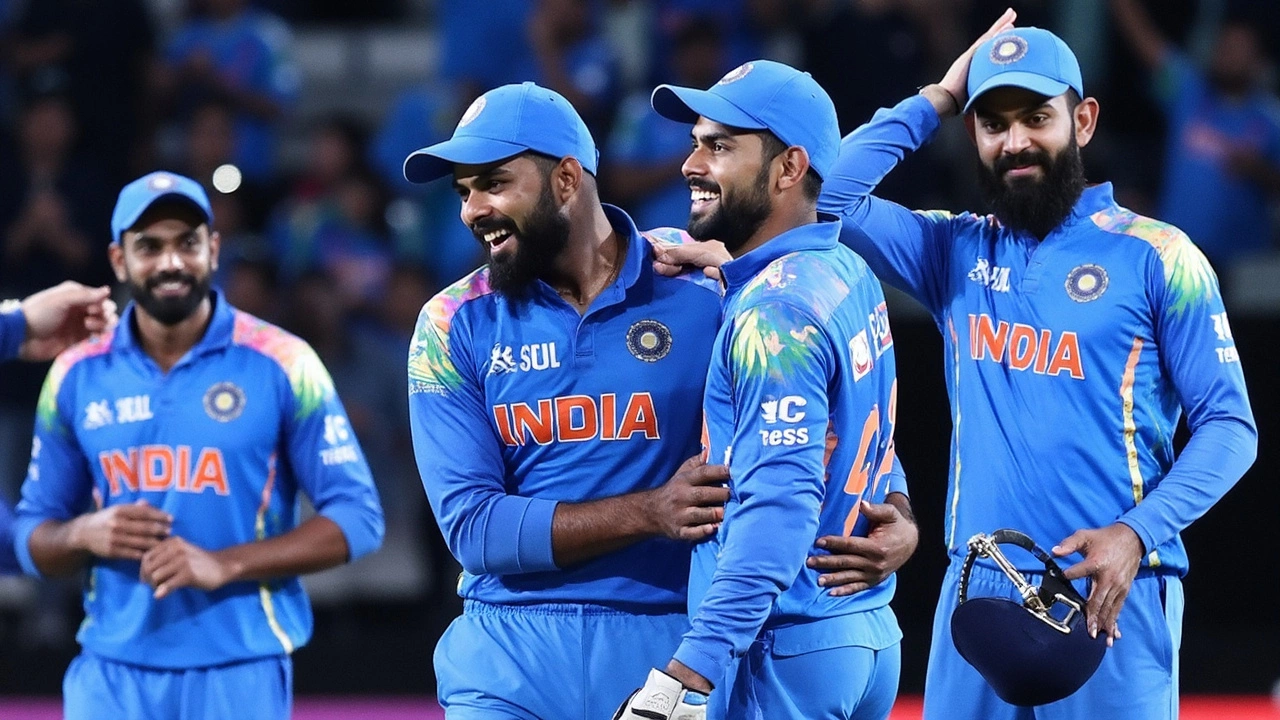Batting Collapse Explained – Why Teams Lose Wickets Fast and How to Recover
Ever watched a match where a side seemed fine and then lost wickets like a leaky faucet? That’s a batting collapse – a sudden, dramatic loss of runs and wickets that can turn a winning position into a defeat in minutes.
What Triggers a Batting Collapse?
Pressure is the biggest trigger. When a bowler lands a tight line, batsmen start guessing, and confidence drops. A good example is the Pakistan‑Afghanistan T20I where Afghanistan seemed set at 92/2, then lost five wickets for just four runs in 17 balls. The momentum shifted, and Pakistan scraped a 39‑run win.
Other factors include poor shot selection, a sudden change in pitch conditions, or a short‑run spell from a bowler who finds the perfect length. In the Champions Trophy 2025, Pakistan’s fielding lapses and dropped catches added extra pressure, leading to a batting collapse that cost them the match.
Recent Real‑World Collapses
Look at the Pakistan vs Afghanistan match – a classic 17‑ball collapse that left fans stunned. Salman Ali Agha steadied the innings, but the quick wickets after the 92‑run partnership showed how fragile a chase can become.
Another case was the Pakistan home Champions Trophy game where a 60‑run loss to New Zealand highlighted that even seasoned sides can crumble when fielding errors give bowlers extra chances.
Even in the IPL, teams have faced mini‑collapses when a couple of quick wickets wipe out the middle order, forcing a late‑innings sprint that often ends in a loss.
How Teams Can Stop the Slide
Strong partnerships are the antidote. When two batsmen rotate the strike and build a solid stand, the pressure eases. In the Pakistan‑Afghanistan game, Agha’s calm 50 and Nawaz’s support stopped the slide, showing the power of a steady partnership.
Another tip is to keep the run rate realistic. Chasing a big total at a breakneck pace invites risky shots, which usually end in wickets. Teams that pace their innings and adjust to the bowler’s rhythm tend to avoid sudden collapses.
Finally, mental resilience matters. Coaches now use sports psychologists to teach players how to stay calm after a wicket falls. The ability to reset after each dismissal can stop a chain reaction.
So, whether you’re a fan watching the next T20I or a player studying a batting collapse, remember it’s a mix of pressure, poor decisions, and sometimes just bad luck. Understanding the signs and sticking to solid partnerships can turn a potential collapse into a comeback.
